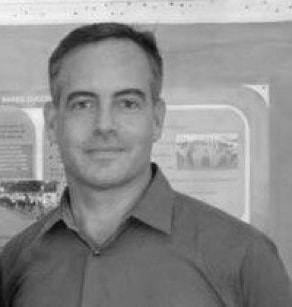Ueli, what do you enjoy most about your work?

I think we find most joy in our work if we see it move
forward and of course if we even see it yield and prosper. In my last assignment in Tanzania I
and my colleagues dealt mainly with operational issues such as funding,
planning, facilitation of program implementation, monitoring, evaluation,
policy dialogue and communication in the country. I silently enjoyed the result
of each of these activities of cooperation with our partners. - What I particularly like and enjoy are encounters with our stakeholders
and discussions on observations of program activities that lead to a deepened
understanding of what we jointly aim to achieve and of where solutions to joint
challenges lie.
As a focal point I now commit to a new pallet of
tasks. In my new position, my satisfaction will derive mainly from our progress
in knowledge management and in the facilitation of cross-institutional learning
with and through as many network members as possible - professionals from
implementation, facilitation and development agencies, research and training
institutes, international organizations, and increasingly also from partner
governments, private sector and other stakeholders.
I see most potential to inspire, improve or change
thinking, dialogue and practices in the interfaces of the working field of our
network. Themes like health, market development, employment, urbanization,
mechanization, digitization, transport, climate change, environment, disaster
risk reduction and water come to mind.
Which are your
favorite instruments?
In modern development cooperation it is our challenge to
become pragmatic and positively thinking and acting integrators. While we all
have our own expertise, we need to integrate the expertise of others, all kinds
of tools and instruments in our continuous work. In agriculture and land-use we
bring “our own” instruments to increase the productivity of food systems and
integrate them with tools that have another and possibly also a wider economic,
ecologic or social logic.
Calling to mind programs that I consider both most
successful and most sustainable regarding upscaling and impact, I would like to
highlight the Market
Systems Development Approach (MSD) and the Climate
Change, Environment and Disaster Risk Integration Guidelines (CEDRIG). Both
are very important instruments that help us to approach development issues
systemically and force us and our partners to be realistic in our planning by
overcome our own biases regarding the economic, social, political or ecological
potential of an idea based on a solid analysis of market structures and future
risks.
Your message for
your colleagues is:
Apart from breathing and drinking safe water, food
security and safety are two of the most basic needs of every man and woman,
from their first day up to their last. How well they are satisfied shapes their
lives and their societies.
Food Systems are challenged by population growth and
climate change. It is important to remain positive and to continue working towards a dignified
life for all with more equal changes to thrive and succeed. Learning allows us to do our jobs better - it is a must. Please make
time to share your insights and questions with us, if you do it thoughtfully, you
will feed our joint hunger to proceed, to compete, to cooperate and to share.
Ueli Mauderli is the newly
appointed Focal Point of the Agriculture and Food Security Network. Until last
year, he was working in the Embassy of Switzerland in Dar es Salaam, Tanzania,
focusing on rural-urban value chains (processing of plant and animal products),
market and skills development in agriculture and forestry, and the support of
sectoral advocacy associations for smallholder producers’ interests. He has
been working for SDC, amongst other positions, as the Focal Point of the SDC
Climate Change and Environment network. He studied forest sciences in the
Federal Institute of Polytechnics of Zurich (ETHZ).
Contact information: Ueli Mauderli, ueli.mauderli@eda.admin.ch
